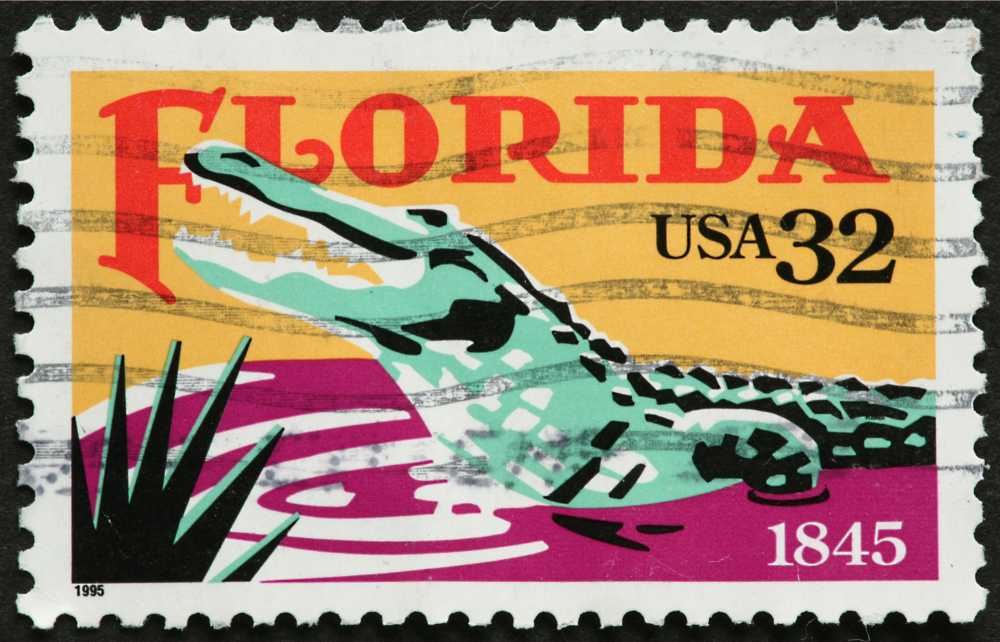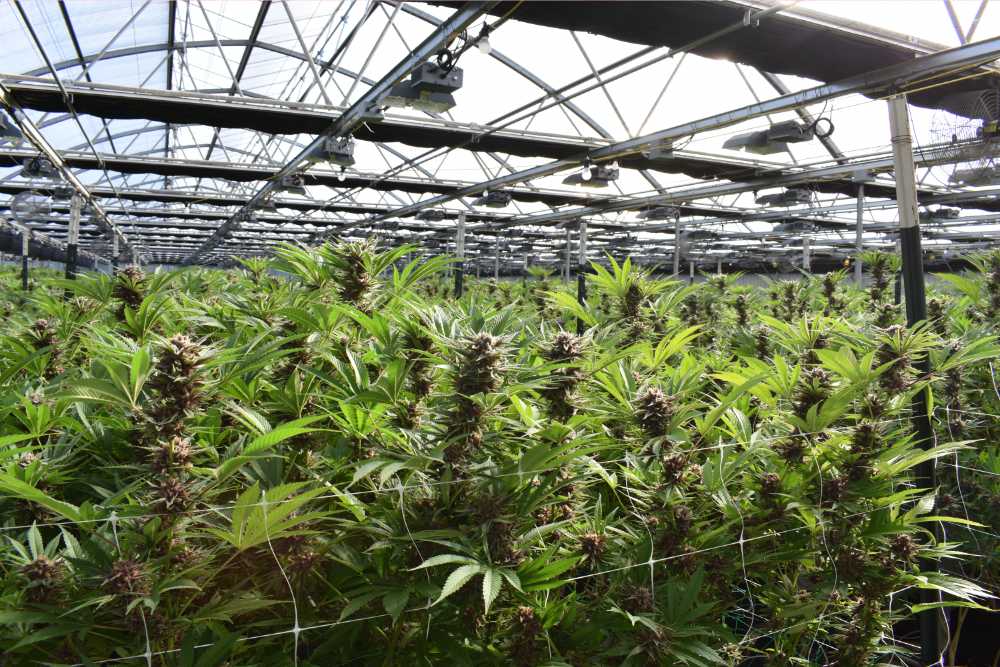THCa is a precursor to THC. It is non-euphoric, but once heated, it converts into THC which has euphoric properties. Its nature makes many people question its legality, especially fans of the cannabinoid living in the Sunshine State. So is THCa legal in Florida? Cannabis laws can get confusing. There are differences between federal law and state law. States make their cannabis rules so you may encounter different regulations as you travel across America.
Laws also vary depending on the origin of the cannabis and its THC content. To add to the confusion, laws can change at any time. However, if you tell a law officer that you weren’t aware of local laws when they arrest or fine you, it’s not going to get you out of trouble. Well, don’t worry. We’ll explain THCa and federal law as well as Florida law so you know what to expect.
What Is THCa?
THCa is a naturally occurring cannabinoid found in the cannabis plant. It occurs in both hemp and marijuana plants. THCa does not have euphoric effects. However, when heated, it converts to THC which has euphoric effects.
The cannabinoid has a carboxyl group that prevents it from interacting with the CB1 receptor, a receptor in the endocannabinoid system that reacts with cannabis to achieve a euphoric effect. When it is heated, it loses that carboxyl group so it is free to interact with the CB1 receptor. Hence, THC’s euphoric effects.
THCa will convert into THC when heat is applied. Therefore, it will take on euphoric properties when it is smoked, vaped, or heated in baked products. However, it can also be enjoyed in its raw form to produce wellness benefits without losing control.
The cannabinoid is known for its potential neuroprotective effects, and its potential to help with metabolic disease and its possible role as a therapeutic agent in helping deal with cellular disease.

Is THCA Legal in Florida?
Yes, THCa has legal status in Florida. However, laws can get confusing due to THCa’s transitionary nature. The Farm Bill went into effect in 2018. Recognizing the benefits of the hemp industry, it legalized all hemp-derived products with a THC content of 0.3% and below.
State laws vary from federal regulations. Many states align with the Farm Bill. Other states allow cannabis regardless of the origin and THC content. In some states, cannabis is still illegal.
Florida is one of the states that aligns with the Farm Bill. So what does that mean for THCa? THCa is federally legal and legal by Texas law because it is hemp-derived and has a low THC content.
However, governments recognize a potential loophole. People can purchase THCa and heat it to convert it into high-content THC. It’s up to dispensaries, consumers, and manufacturers to ensure the THCa they buy and sell converts to THC with a low THC content. But testing every product is nearly impossible. As a result, its legal status may be questioned.
To ensure full legality, always purchase your THCa product from reputable retailers. At Exhale Wellness, we’re among a few reputable online retailers that sells Farm Bill-compliant THCa products ready to elevate your day. Shop our extensive THCa collection and find the right product for your needs.
Overview of Florida Cannabis Laws
Hemp-derived products are approved within Florida’s legal landscape, but there are strict regulations in place for medical marijuana use. People with a qualifying medical condition can use medical marijuana. If a doctor approves treatment, the patient may receive a medical marijuana card.
Unlike medical marijuana, recreational marijuana is still considered a controlled substance in the state. Possession limits apply as follows:
- Possessing 20 grams or less of marijuana constitutes a misdemeanor, carrying a punishment of up to one year in jail and a $1,000 fine.
- Possessing larger amounts triggers a potential prison sentence of 15 to 30 years and significantly higher fines.
- Carrying 25 pounds or more qualifies as drug trafficking.
Know the legal limit of the cannabinoids you use to ensure you stay out of trouble. However, you can feel safe when using THCa. Hemp-derived THCa is legal in Florida for medical and recreational use.

Benefits and Uses of THCa
THCa may not interact with the CB1 receptor, but it interacts with the CB2 receptor which is responsible for many of cannabis’s potential therapeutic benefits. Here are some benefits THCa may provide.
- Potential Neuroprotective Benefits and Alleviating Bodily Stress. A 2017 study revealed THCa’s potential neuroprotective properties. Animal studies found its potential to protect the brain from cognitive degeneration and accompanying stress. It was shown to have more potent brain benefits than its decarboxylated counterparts.
- Growing Interest in THCa for Wellness Purposes. The increasing cannabis legality is opening doors for research of various cannabinoids, and THCa is at the forefront. It has been found to provide numerous wellness benefits when consumed in its raw, unheated form. However, scientists have issues researching THCa without facing issues with THC contamination at high temperatures. Advancements in research technology will hopefully alleviate these issues.
- Emerging Applications in the Cannabis Industry. THC may have other wellness benefits that are similar to THC. For example, its anti-inflammatory properties make it a prime choice for physical discomfort relief. It may also help to lower upset stomach.
Future of THCa Legality in Florida
As of this writing, is THCa legal in Florida 2024? Yes, THCa and other hemp-derived cannabis products are currently legal in Florida, but federal guidelines and state laws can change at any time- and it may happen sooner or later. The Farm Bill is due for a review and consumers are uncertain of what’s to come involving Florida THCa laws and hemp cultivation.
Consumers should stay updated on the latest laws concerning THCA products to ensure they stay out of trouble.
You can also do your part by becoming a THCa advocate. Write your local government explaining the benefits of THCa and other hemp-derived products. One letter can make all the difference.
Consumers can also get involved by continuing to buy cannabis and support the hemp industry. When politicians see how cannabis helps their economy, they will be less likely to illegalize products. With current laws in place, and the future of cannabis looking bright, Floridians can do their part by advocating local politicians to ensure THCa remains legal.

FAQs – Is THCa Legal in Florida?
Is THCa Legal Under Florida Hemp Laws?
Yes, THCa is compliant with Florida hemp laws because it is hemp-derived and has a low THC content. To ensure legality, it should convert into low-THC cannabis.
Can THCa Be Used in Florida’s Medical Program?
THCa may be suitable to treat various medical conditions, however, you do not need medical approval to use it.
Are There Restrictions on THCa Sales in Florida?
There is a restriction on THCa sales in Florida. The THCa must convert into a product with a low THC content. If it does not, it may not be available for legal sale.
What Are the Benefits of THCa?
THCa provides several benefits. It reduces inflammation, acts as a neuroprotectant, relieves pain, reduces nausea, and may treat metabolic disease.
How Can Florida Residents Stay Compliant with THCa Laws?
Florida residents can stay compliant with THCa laws by purchasing cannabis from a trusted provider. A reliable company will provide lab testing ensuring products convert into low-content THC. You can also trust these brands to be Farm Bill compliant and not ship to states where cannabis products are illegal.
Final Thoughts- Is THCa Legal in Florida? [Legality Takes an Unexpected Turn]
So is THCa legal in Florida? Yes, it is, as long as it’s hemp-derived and converts to low-content THC. However, consumers are advised to stay on top of local laws. They could change at any time.
You can also ensure you remain compliant by purchasing cannabis from a company you can trust. They will provide lab testing that establishes THC content. The company will not sell you products that may be illegal. We wish you the best possible cannabis experience.
Editor’s Note: The information provided on this site is intended solely for general knowledge and should not be interpreted as legal advice or a comprehensive review of current laws. We do not guarantee the accuracy or dependability of the legal details shared here, nor is it designed to influence decisions regarding our products. Laws differ across states and are subject to frequent updates, which means the content may not always reflect the most current legal standards. To ensure compliance, we encourage consulting a qualified attorney in your area or the location where you plan to ship products.




